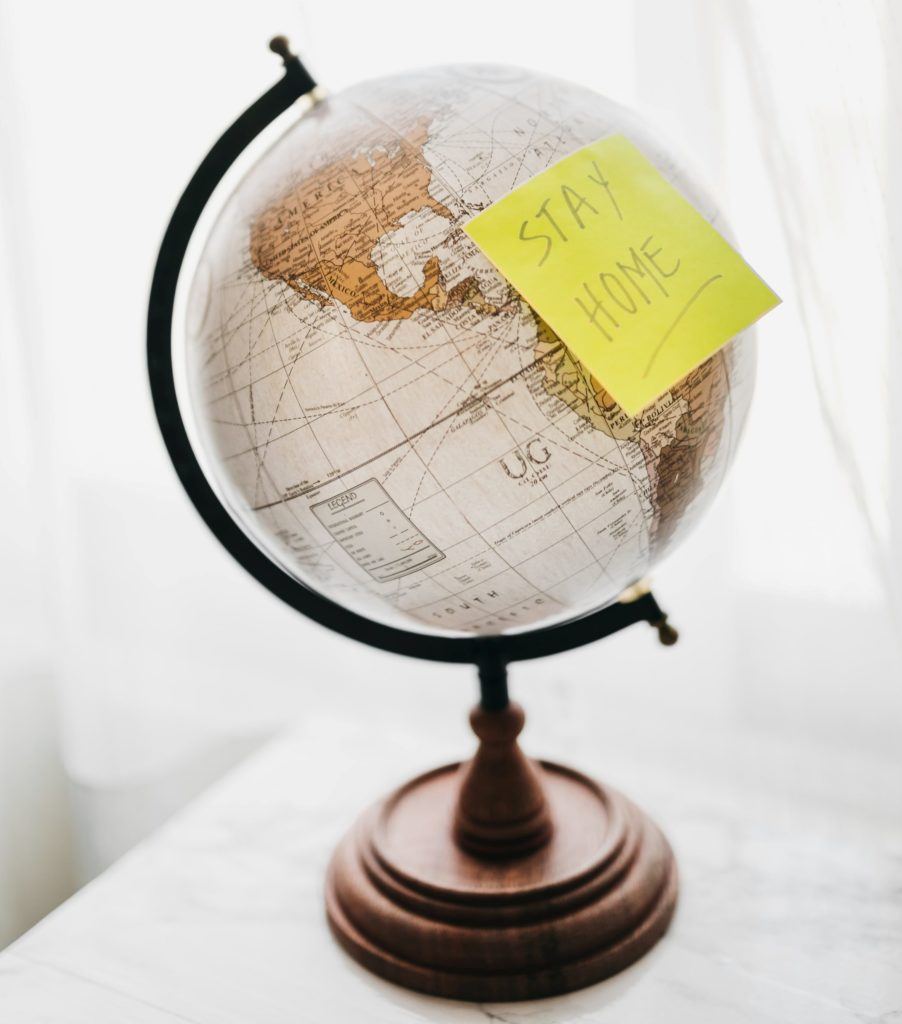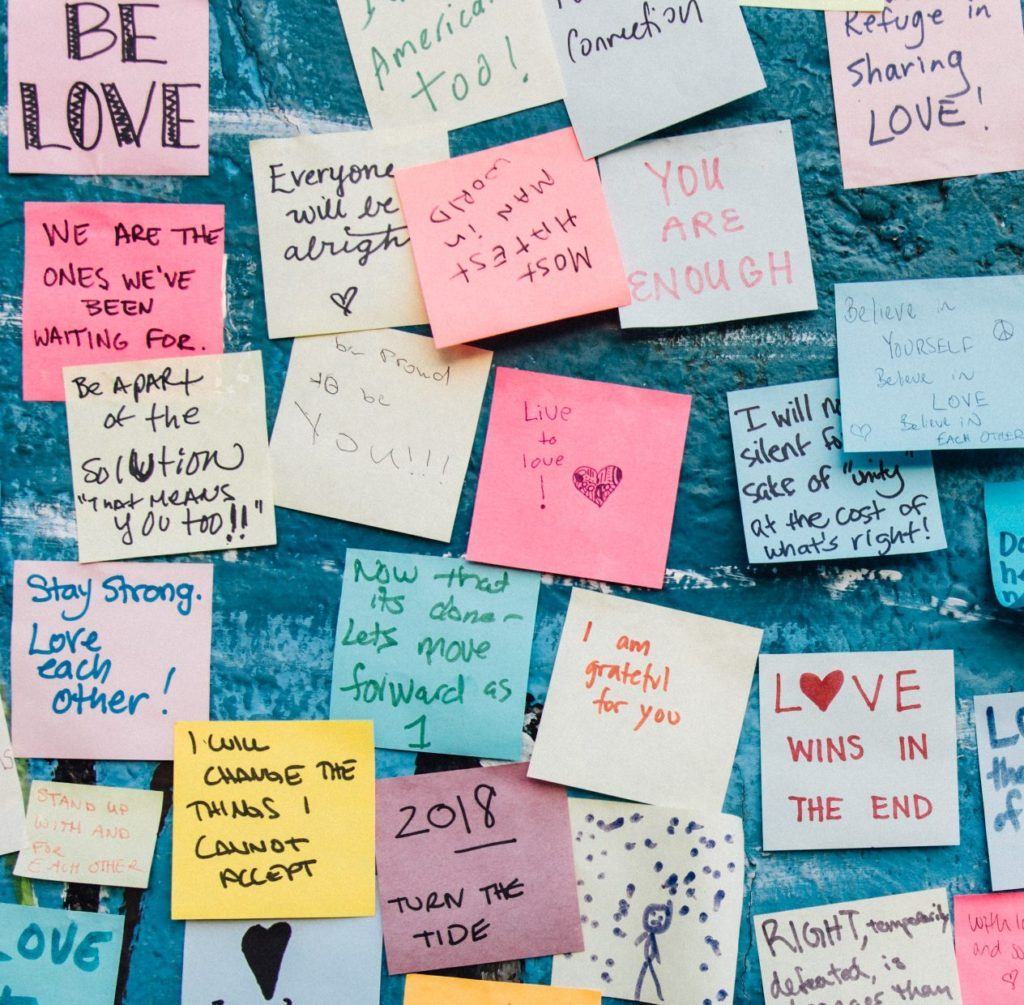“I Don’t Do Vulnerability” and Other Myths
As we all scramble to adjust our daily routines and expectations during this global pandemic, the need to settle in is also emerging. Our personal and collective vulnerability has become undeniably apparent. We have no choice but to wait for more information about timelines and what will be asked of us next.
 Brené Brown defines vulnerability as uncertainty, risk and emotional exposure. With the monumental shifts in our regular ways of being and knowing, our current reality is clear. To be alive is to be vulnerable. No amount of effort or striving will give us a free pass.
Brené Brown defines vulnerability as uncertainty, risk and emotional exposure. With the monumental shifts in our regular ways of being and knowing, our current reality is clear. To be alive is to be vulnerable. No amount of effort or striving will give us a free pass.
What do you think of when you hear the word vulnerability? Do images of scarcity, fear, and fragility flash through your mind? During her TED talk, The Power of Vulnerability, Brené Brown shared that although vulnerability holds the risk of disappointment, failure, and pain, it is also the birthplace of all of the experiences we long to have more of. Without vulnerability we are unable to have experiences such as love, joy, trust, connection, belonging, courage, creativity, or innovation.
These are exactly the experiences we will all need more of.
Not only to continue to cope personally in the weeks and months to come, but to overcome COVID-19 in our local and global communities. Continuing to be vulnerable and brave will allow for us to evolve into a new way of being once we are past the need for extreme physical distancing.
There are common misconceptions about vulnerability that can get in the way of us benefitting from all the gifts it has to offer. Four myths of vulnerability emerged in the lived experience of Brené Brown’s research participants.
Vulnerability Myths
Myth #1: “Vulnerability is Weakness”
This is the most widely accepted myth about vulnerability. However, in the thousands of pieces of data in Brené’s research, there wasn’t a single example that showed that vulnerability was weakness. Quite the opposite. The examples people shared of times when they were vulnerable were stories of sheer courage.
Vulnerability is the last thing we want others to see in us. When we are vulnerable ourselves we feel weakness. Interestingly, it is the first thing we look for in others. When we witness someone else being vulnerable, we see courage. Their willingness to reveal their imperfect humanity makes us feel connected. It builds trust.
Myth #2: “I Don’t Do Vulnerability”
Whether it is in our relationships, careers, or during a global pandemic, we do not get to opt-out of uncertainty, risk, and emotional exposure. As Brené says, if we don’t “do vulnerability”, we can be sure that vulnerability is “doing us”.
When we let vulnerability call the shots, it gets us to put on heavy armour. We use behaviours like perfectionism, numbing out, or dress rehearsing disaster to try and protect ourselves. But all those behaviours do is drive us further away from the core of who we are.
Life is not as rich and fulfilling when we are “armoured up”.
During our conversation in Episode #3 of Small Conversations for a Better World Podcast, Susannah Steers spoke about a time when she bought into this myth. Her explorations led her to dive deeper into the concept of armouring. We get into this part of the discussion at about 38:14. Have a listen if you’d like to learn more about ways we armour up both emotionally and physically.
Myth #3: Vulnerability is Oversharing
Sure, we’ve heard the message that vulnerability is essential for leading a meaningful and wholehearted life. But do we really need more vulnerability in our reveal-all, social media obsessed world?
If we are sharing our deepest hurts or struggles with someone who hasn’t earned the right to hear our story, this isn’t vulnerability. It might be an attempt to hotwire connection or get unmet needs acknowledged. But the boundaries inherent to true vulnerability are not present when we overshare.
 How do you feel when someone shares TMI (too much information)? It repels us, doesn’t it? It does the exact opposite of what vulnerability does, which is create deeper connection and trust. Trust is built over time, experience by experience. We can’t speed up the process by divulging more of ourselves than a relationship is ready to hold.
How do you feel when someone shares TMI (too much information)? It repels us, doesn’t it? It does the exact opposite of what vulnerability does, which is create deeper connection and trust. Trust is built over time, experience by experience. We can’t speed up the process by divulging more of ourselves than a relationship is ready to hold.
Myth #4: We Can Go It Alone
From the moment we are born, we are reliant on others to survive and to thrive in this world. We are neuro-biologically hardwired for interdependence.
It is convenient to think that not relying on anyone makes us the picture of strength and resilience, but we all need support and encouragement.
We all need someone who will bear witness to our struggle. Our imperfect, humanness.
In her book the The Gifts of Imperfection, Brené wrote “When we attach judgment to receiving help, we knowingly or unknowingly, attach judgment to giving help”. For those of us who are really good at showing up for others in their time of need, but struggle with reaching out when we are in need, we owe it to ourselves to ponder that statement as we all navigate through this challenging time together.
Additional Vulnerability Myths:
Watch Brene’s Netflix special or read her latest book for two additional myths that came out of her Dare to Lead research (#5: Trust Comes Before Vulnerability and #6: We Can Engineer the Discomfort Out of Vulnerability).
What are we doing with vulnerability?
I won’t pretend to have answers about how to best cope with a global pandemic. I do know that embracing vulnerability is one of the ways we can increase our resilience to the challenges we face in life though, regardless of our circumstances. There are opportunities in our current situation that invite us to build our capacity for more vulnerability. The good news? In these trying times, you are likely already doing a number of them naturally without even realizing it!
Challenge the myths
By understanding how the four myths might show up in our own lives, we can begin to honour and make more space for our imperfect messy selves. We can create more courage, compassion and connection – within ourselves and the people around us.
Model imperfection
We have all been forced into a massive adaptation of our routines, usual roles, and ways of connecting. When we see others figuring things out as they go, it gives us permission to do the same. Courage is contagious.
 If you’ve ever felt like you had to “have it all together”, now is a great time to embrace not having it all together. Be a model for others that they don’t have to either. None of us have done this before. Patience, kindness, lowering our expectations and having compassion for ourselves and each other are valuable currency these days.
If you’ve ever felt like you had to “have it all together”, now is a great time to embrace not having it all together. Be a model for others that they don’t have to either. None of us have done this before. Patience, kindness, lowering our expectations and having compassion for ourselves and each other are valuable currency these days.
Offer AND accept help
We will all need to reach out to our inner circles in the weeks ahead, not only to check-in with loved ones, but also for our own wellness. If you are someone who is more comfortable giving than receiving help, remain open to opportunities to let someone else support you.
Stay engaged in living and creating
We are going to need people who think creatively on micro and macro levels as we emerge from our socially distanced bubbles and figure out how to move forward on the other side of this. Regardless of our circumstances, staying aligned with our values is key to courageously engaging in the things that are most meaningful to us. Find purpose in your current circumstances. Share your creative ideas with your colleagues and communities as we move forward into our new normal.
About Karen Gilbert
 Karen Gilbert is a Vancouver-based Occupational Therapist who helps people juggling a busy life and an invisible health condition develop new strategies and habits for living life with greater ease. She is a Certified Daring Way™ Facilitator and leads Daring Greatly™ and Rising Strong™ groups based on Brené Brown’s research on vulnerability, courage, shame, and worthiness. Visit her website for more information about her work. You can also find her on Instagram, Twitter and Facebook.
Karen Gilbert is a Vancouver-based Occupational Therapist who helps people juggling a busy life and an invisible health condition develop new strategies and habits for living life with greater ease. She is a Certified Daring Way™ Facilitator and leads Daring Greatly™ and Rising Strong™ groups based on Brené Brown’s research on vulnerability, courage, shame, and worthiness. Visit her website for more information about her work. You can also find her on Instagram, Twitter and Facebook.
If you enjoyed this article, also see Karen’s piece on 3 Ways to Lighten Our Mental Load
Want to learn more?
If you are keen to further explore embracing vulnerability and showing up, being seen, and living brave in your own life, sign-up for updates about upcoming groups at the bottom of the page on Karen’s website. The Daring Greatly™ weekend workshop in Vancouver planned for June will be re-booked due to physical distancing. Once she knows she can safely host and create a physical space for connection with like-minded others, Karen and her co-facilitator will announce new dates. Drop her an email to hold a spot for the next session.
References
Brown, C. B. (2012). Daring Greatly: how the courage to be vulnerable transforms the way we live, love, parent, and lead. New York, NY: Gotham Books.
Brown, B. (2010). The gifts of imperfection: Let go of who you think you’re supposed to be and embrace who you are. Center City, Minn.: Hazelden.
